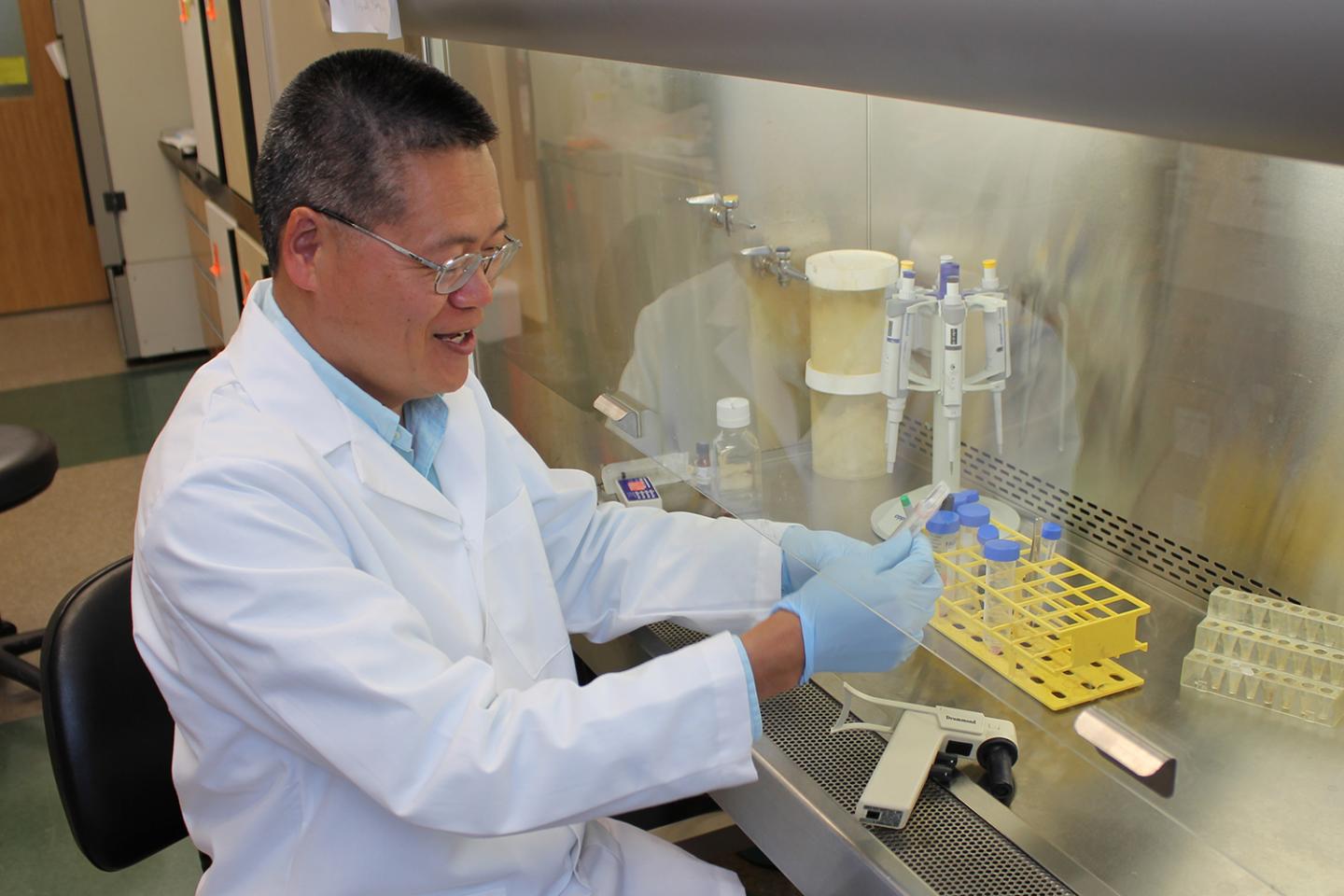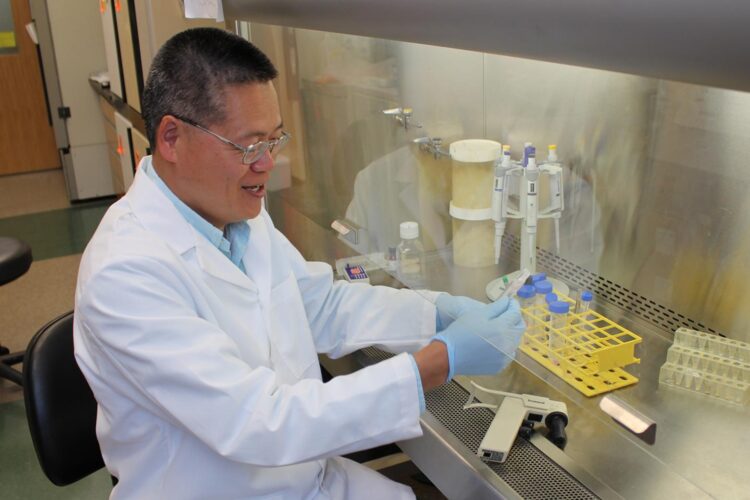UConn researcher Laijun Lai has developed recombinant proteins and antibodies to combat autoimmune diseases and immunosuppression in cancer patients

Credit: UConn Photo
The immune system is a complex balancing act; if it overreacts or underreacts to foreign molecules, there can be serious health consequences.
For cancer patients, tumor progression is often accompanied by immunosuppression, meaning their bodies can’t fight off pathogens the way they should. By contrast, for people with autoimmune diseases like type 1 diabetes, rheumatoid arthritis, and multiple sclerosis, their immune systems overreact and attack the body itself.
Both of these reactions are influenced by a series of molecular checkpoints found in both immune cells and cancer cells. In immune cells, these checkpoints are supposed to prevent the immune system from mounting a response that is too strong and attacks healthy cells. For people with autoimmune diseases, these checkpoint molecules do not function properly. In cancer cells, they bind to immune cell receptors and inhibit their function to a degree that makes patients vulnerable to severe illness and infection.
Dr. Laijun Lai, a research professor in the Department of Allied Health Sciences in the College of Agriculture, Health and Natural Resources, has used bioinformatics and gene engineering techniques to develop a series of recombinant proteins and antibodies for a novel set of checkpoint molecules to address both of these concerns. Lai recently published a paper on the effectiveness of this invention in EMBO Molecular Medicine and has a patent pending for this invention.
Scientists made a major breakthrough when they identified several checkpoints, specifically PD-L1, PD-1 and CTLA-4, within the last decade. There are several FDA-approved medications that produce recombinant proteins to treat autoimmune disease, and antibodies to block the inhibitor activity of these checkpoints for cancer patients. However, not all patients respond to these treatments since there are many other checkpoints at work.
Using a bioinformatics approach, Lai identified three additional checkpoints: CD300c, ERMAP, and TAPBPL found in both immune cells and cancer cells. The bioinformatics approach identified the checkpoints that were most likely to be relevant based on their genetic and structural similarities to previously identified molecules.
Each molecule binds to a specific immune cell receptor to send an inhibitory signal and uses different mechanisms to check immune cell responses.
“The expression pattern of our molecules are different from existing checkpoint molecules and, probably, a different subset of patients will respond to them,” Lai says.
Lai’s group used genetic engineering to develop recombinant proteins from the genetic blueprint of these proteins. Lai has demonstrated that these recombinant proteins can successfully suppress T-Cell function in animal models of autoimmune diseases.
On the other side, Lai’s group developed antibodies that can block the inhibitory activity of these checkpoint molecules. He found the antibodies enhance antitumor immunity and inhibit tumor growth in animal models.
These therapies can be combined with exiting antibodies for PD-L1, PD-1 and CTLA-4, or on their own for patients who do not respond to those treatments.
“Our antibodies against these checkpoint molecules have the potential to be used in the treatment of cancer patients who are resistant to the anti-PD-1, PDL1, and CTLA-4 antibodies and can also be used in combination with existing antibodies to enhance the antitumor effects,” Lai says.
###
In addition to this recent publication in EMBO Molecular Medicine, Lai and his collaborators have published their findings about this technology in other high-impact journals including Frontiers in Immunology, and Cellular and Molecular Immunology.
Lai’s research was supported by more than $7 million total funding from the National Institutes of Health, Connecticut Innovations, and the American Cancer Society.
The next step for this innovation is to use their recombinant human proteins in clinical trials to treat autoimmune disease, develop human antibodies and continue their functional studies with the final goal of using them as novel therapeutics for cancer.
Media Contact
Jessica McBride, PhD
[email protected]
Original Source
https:/
Related Journal Article
http://dx.





